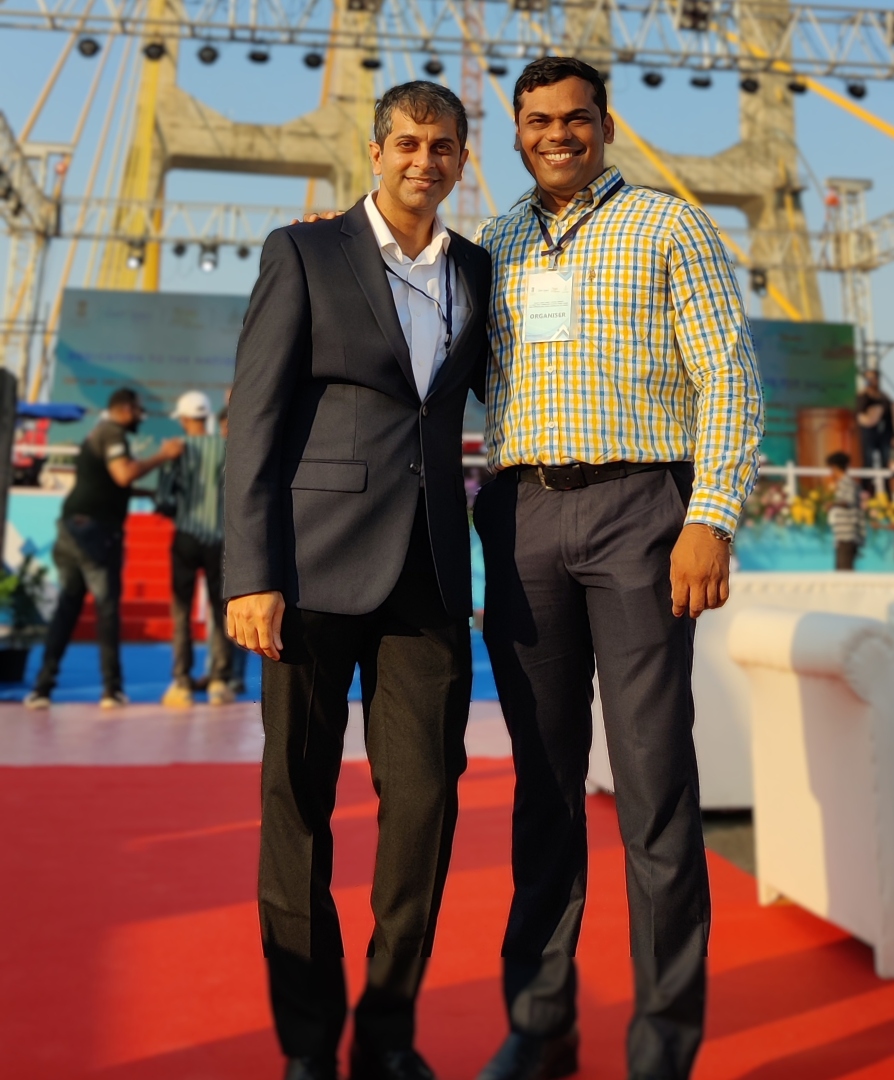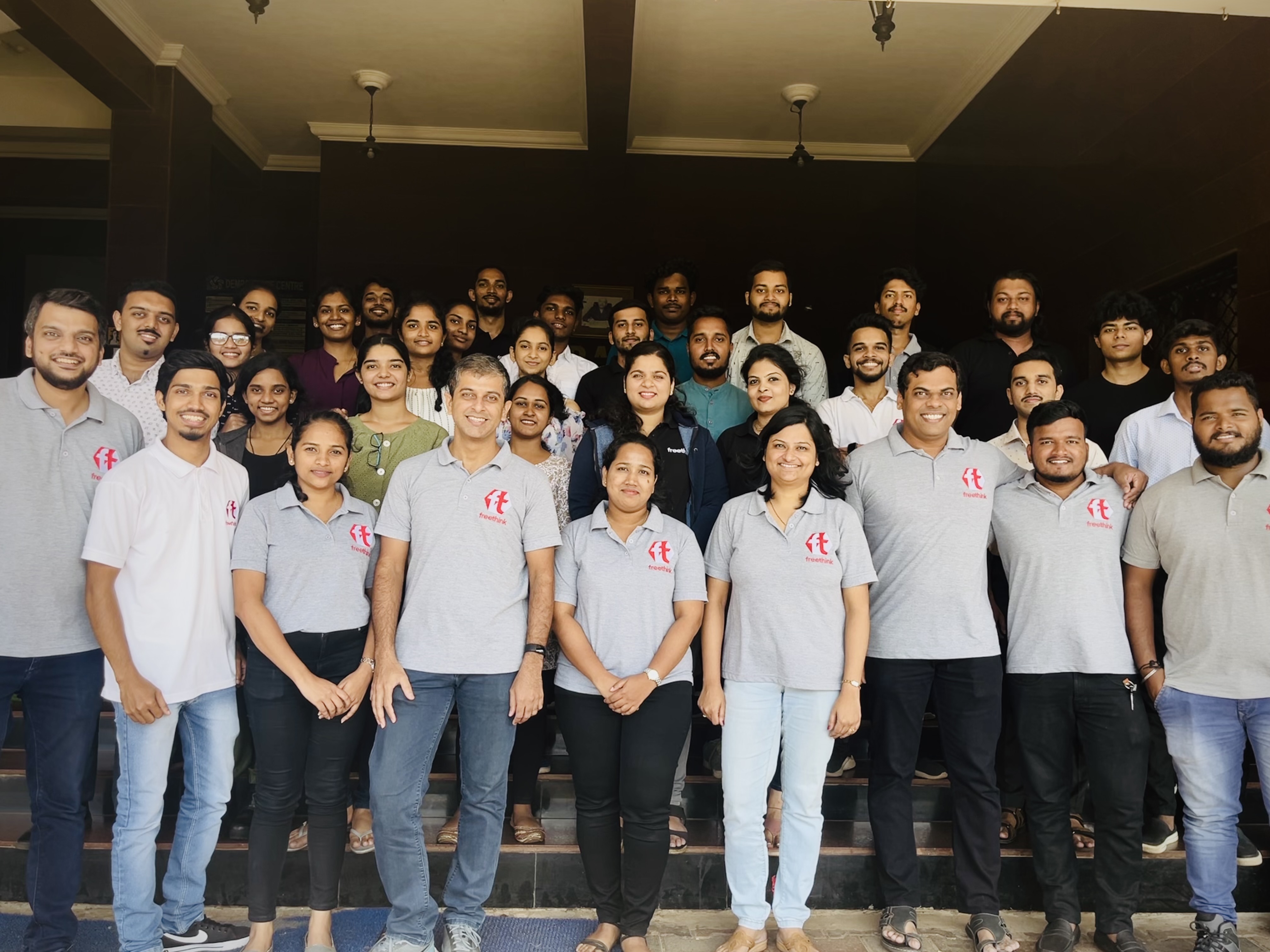The Paperless Legislative Assembly of Goa project has saved the government over Rs 22 crore in paper and processing costs. The Assembly estimates that 17,82,04,000 sheets of paper have been saved by their migration to a paperless mode

Promoters Amit Tamba and Vinit Naik
PANAJI
India’s public sector faces a number of challenges such as rising population, rapid urbanisation, increasing traffic, etc. It is not enough to simply work harder or strain existing infrastructure to its limits, we need to find a way to transform the way we serve our citizens. ‘Freethink’ is a GovTech start-up that helps organisations migrate from legacy paper-based systems to paperless operations,” boast promoters Amit Tamba and Vinit Naik.
“MapFlows platform is an operating system for modern governance that combines the power of paperless workflows, GIS (Information displayed on an interactive map) and IoT (Internet of Things are smart devices that are connected to the internet) to provide a single integrated solution," states Tamba.
 The Freethink team
The Freethink team
“We deliver turnkey projects that include government process re-engineering, so that we can improve the way a service is delivered. Our projects have documented savings of tens of crores and have massively improved the efficiency and transparency of government processes. A number of routine bureaucratic steps have been automated by our system to improve efficiency and to free up the users from mundane tasks.”
Freethink focuses on organisations that have field operations because they are the hardest to manage using traditional means.
“Utilities or municipalities have lakhs of assets, hundreds of employees, and have to respond to issues in real-time. They are presently using ad-hoc tools such as WhatsApp to communicate and collaborate, but it is highly inefficient while working in a hierarchy. ‘Freethink’ offers integrated operations management systems that are purpose-built to improve collaboration and ensure that the whole team is on the same page.”
“Operating from Panaji, Vinit and I have worked with related projects earlier, but our mission was crystallised with the formation of Freethink LLP in 2017,” shares Tamba.
He points out that developed countries have used Geographic Information Systems (GIS) and paperless office platforms for decades now, but India is yet to extensively adopt these technologies.
“Early attempts to introduce GIS in the Indian government failed because they bought imported systems without any adaptation to Indian needs. Paperless office platforms were a bigger challenge because they mostly tried to digitise existing processes without adding any value beyond that,” he feels.
Realising that these technologies could add a lot of value, but they had to be cast into a solution that provided real value to the user, Tamba mentions that the IoT or Internet of Things piece is the cherry on the cake, as it provides a complete solution for users to monitor the real-time status of their organisation.
“We started small with solutions in basic GIS systems and paperless office solutions, but we now focus on larger integrated solutions that power smart cities, public utilities, and have worked with international clients on GIS solutions,” says Tamba.
“The impact of our projects is very easy to see. A single project of ours, the Paperless Legislative Assembly of Goa, has saved the government over Rs 22 crore in paper and processing costs. The Assembly estimates that 17,82,04,000 sheets of paper have been saved by their migration to a paperless mode.”
“What's more significant is that the number of RTI queries received by them has gone down significantly, because all the information is transparently available online. The Goa Legislative Assembly project is a model for how government processes should operate.”
Tamba’s mission is to power data-driven decisions – MapFlows can automatically apply rules that govern the organisation.
For example, a person with a particular income should not be eligible for welfare schemes, or a mall should not be permitted in agricultural land.
“So, the next time you wonder why an application was rejected, MapFlows can give you a clear answer about the rules it violated. It is a world-class platform. We have spent the last few years building reference implementations in different scenarios. Our plan is to develop partners across India to replicate the success we have had in the reference projects.”
The GovTech space is mostly serviced by very large companies and it is difficult for smaller companies to navigate that space.
Tamba recalls, “Several years ago we had pitched our platform to a Smart City along with a slew of large competitors. At the time, we were told that we had the best presentation, but we didn’t have the requisite prior experience. We had to fight our way up that hill with one successful project after another. We finally won our first Smart City project and realised how big a journey we had made!”